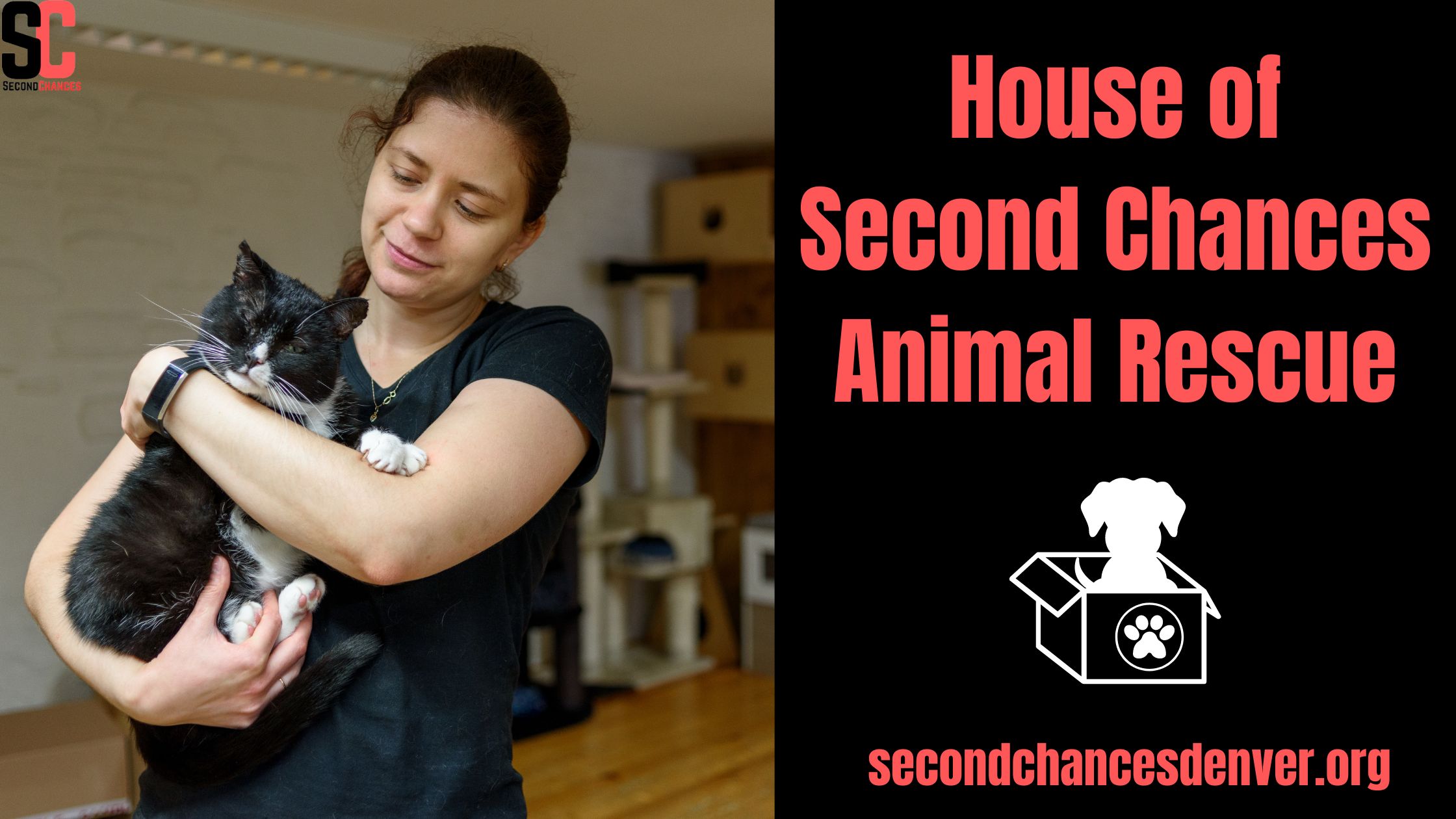It is amazing how much work animal shelters and House of Second Chances Animal Rescue do! Their services are usually provided with minimal resources and little publicity, but they help countless numbers of animals and people.
You can show your appreciation for the groups that do so much for animals, people, and your community in one or more of the following ways.
How does House of Second Chances Animal Rescue work, and how can you adopt a pet from there? The following guide will teach you everything you need to know.
Table of Contents
What is An Animal Shelter?
Animal shelters provide safety and comfort to homeless animals and animals seized by animal cruelty authorities. They care for these animals and find them homes. The temporary housing of animals in shelters prevents them from roaming the streets, where they are at risk of being hit by cars, abused by cruel humans or dogs, or starved to death.
What is House of Second Chances Animal Shelter?
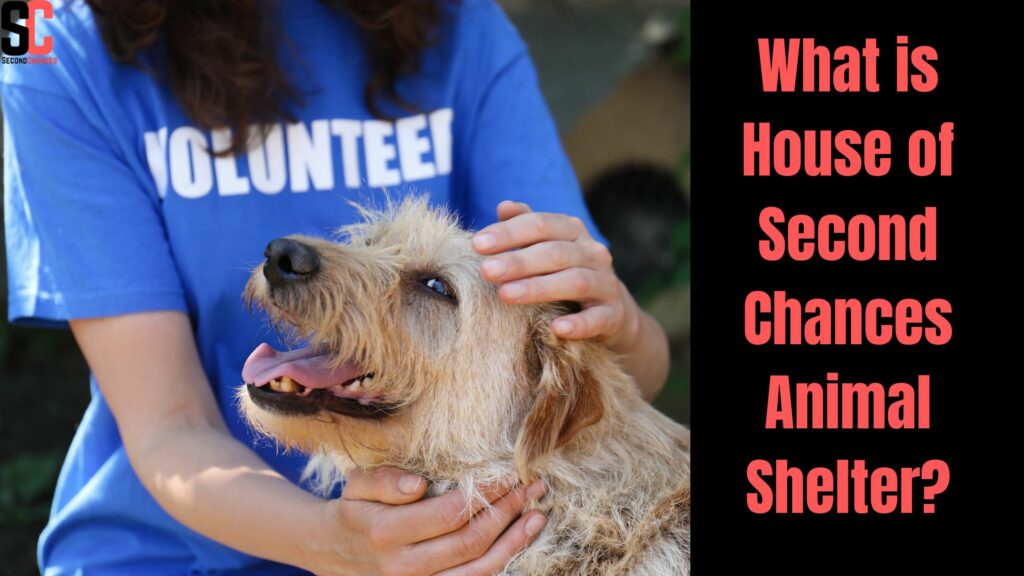
The Second Chance Animal Shelter (SCAS) has provided innovative programs and services for animals since 1999. The SCAS reduces the number of homeless pets by preventing unwanted litters, offering low-cost veterinary services, and promoting best practices for animal sheltering. They have a unique philosophy.
Too many years have gone by with animal welfare focusing solely on animals already in shelters. SCAS focuses on preventing animal suffering by addressing the underlying causes of shelter use. People and their pets benefit from their services, including education, surrender prevention, and low-cost veterinary care. The SCAS is dedicated to serving the needs of pets and their owners. They operate the only subsidized veterinary clinic in Massachusetts. Those without access to private veterinary care can go to the Pet Wellness and Education Center for a full range of veterinary services, including physical exams, diagnoses, treatment, dental work, and surgeries.
Why Should You Adopt A Pet?
There is no doubt that dog adoption and cat adoption save lives. You will have a lifetime friend when you adopt a dog or cat. Consider visiting the Second Chance Pet Adoption League to find your new furry companion.
What is the difference between adopting a dog, cat, kitten, or puppy and getting dogs for sale, cats for sale, puppies for sale, or kittens for sale from a dog breeder or a cat breeder?
A person who breeds puppies or kittens is raising a new breed of dog or cat that needs a home. The only way to find a specific breed of dog or cat is to buy a dog for sale or buy a cat for sale from a puppy breeder or kitten breeder who breeds the specific breed. However, there are many dogs and cats who need homes in animal shelters.
House of Second Chances Animal Rescue Adoption Process
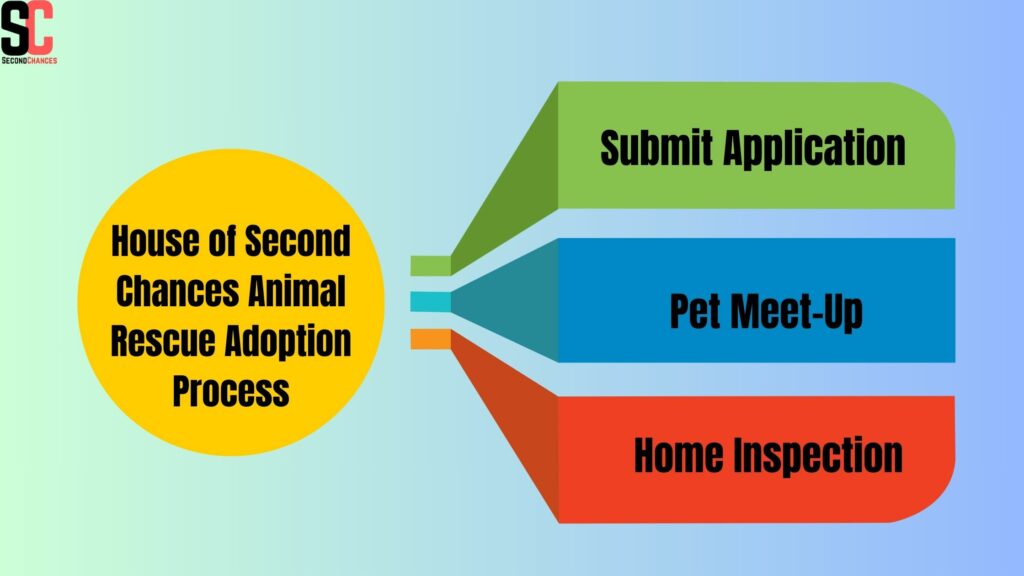
Submit Application
You can apply for a pup once you choose one. Please include your phone number so the Organization can contact you with additional information.
Pet Meet-Up
If your application is approved, the Organization will arrange for you to meet the pet in person, either at an adoption event or at a public location.
Home Inspection
It is a requirement that all gates in the yard be locked and that small dogs have their gates meshed. It is mandatory to lock all gates.
Pros And Cons of House of Second Chances Animal Rescue
Pros of House of Second Chances Animal Rescue
- Adopting a pet only requires an on-site visit.
- There are usually fewer requirements and shorter processing times for pet adoptions, although this is not universal.
- You can meet puppies, kittens, rabbits, and other pets in a community area or playroom before bringing them into your home.
- Most pet adoption centers treat minor ailments before adopting animals, especially dogs and cats.
- Adopting a pet usually involves deworming, spaying, and neutering it.
Cons of House of Second Chances Animal Rescue
- Playing in the park with the dog
- There are some animal shelters that are in a hurry – sometimes in less than a week – to get you to adopt because of their limited resources.
- There are some animals up for adoption whose histories are unknown.
- A staff member or volunteer may not be familiar enough with a dog or cat to decide whether you would make a good match as its new best friend.
- There are extra fees and requirements that must be met before you can adopt or take a pet home from a private shelter.
- A confined environment and a lack of food often cause shelter dogs and cats to behave poorly during adoption.
What You Need to Know About Your Local Dog Shelter?
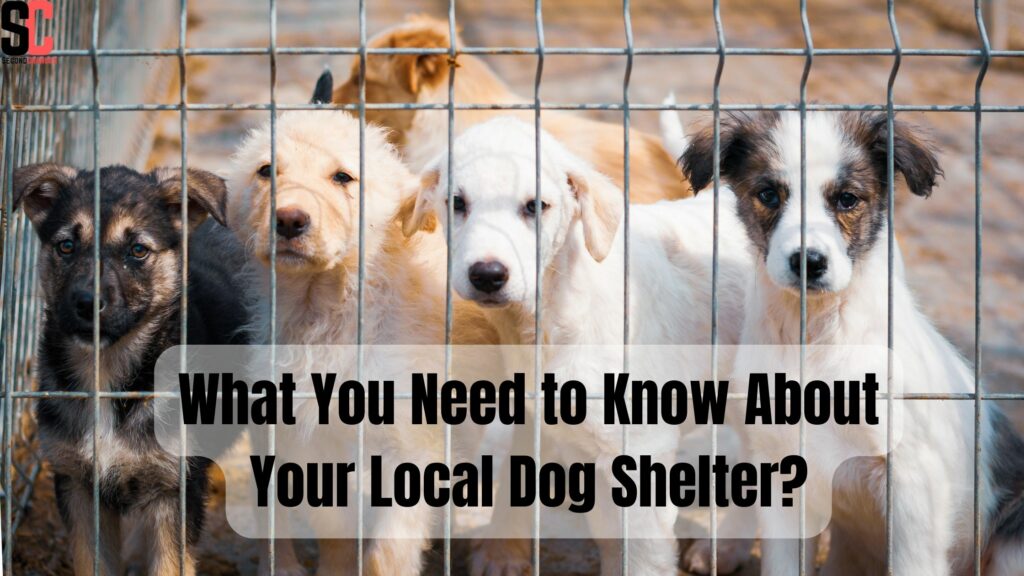
In every category, there are outstanding shelters as well as horrible ones. The necessities of feeding animals, cleaning cages and kennels, and maintaining shelter grounds are within the budget of any legitimate shelter. Do you know how your local shelter(s) measure up? What you need to do is:
- You can find it on its website. These days, many shelters have a comprehensive Internet presence, and visiting their website can reveal a lot about them – or at least what they have to say about themselves.
- It is important to visit each shelter. Make sure you pay attention to what you hear, see, and smell. Do you notice dirt, clutter, and many hazardous conditions, or are the facilities clean, odor-free, and well-maintained? Despite budgetary constraints, cleaning should not be neglected due to deferred maintenance.
- Keep an eye on customer service interactions. Does the staff conduct themselves politely and helpfully, despite emotional situations and overwrought customers? Is their behavior rude, abrupt, or disrespectful? There’s no excuse for rude shelter staff, and courtesies don’t cost a thing.
- Inspect the kennels for animals. Are they reasonably well-adjusted in a shelter’s admittedly stressful environment, even the best ones? Do they enjoy outdoor play areas, stuffed Kongs, toys, and beds in their kennels? Do they have bed-in-kennel equipment? What about barrier aggression, obsessive/compulsive spinning, depression, and self-mutilation?
- A population density assessment should be conducted. Do you have one, two, or 15 dogs per kennel? What kind of playmates do puppies and kittens have? Are kennel-mates friendly or intimidated by each other?
- Explore their website to discover the services they offer. You will be walked through the adoption process. Animal services are available for stray dogs, distressed animals, and disputes involving animals in the neighborhood.
- Make a difference by volunteering. The more involved you are, the more you’ll learn about the shelter’s behind-the-scene operations. If you cannot handle frequent shelter visits, consider public relations, fundraising, education, or putting on special events. Put the judgment on hold for at least the first six months.
- The officer can ride along with you. A field visit with an officer will give you a whole new perspective on the challenges of being an animal protection officer.
How To Find The Right Shelter Dog For You?
It is extremely important to find the right fit when adopting a dog. A pup in need should never be matched with a home and then returned to the shelter shortly thereafter. A dog can make a great addition to your family, but there are several factors to consider.
Things To Consider Before Choosing A Dog To Adopt?
Lifestyle
Think about how your daily routine would be affected by a dog. Do you prefer to stay at home or go on adventures? The type of dog you’re looking for depends on your lifestyle.
Activity
You should consider your energy level and your ability to exercise. The needs of high-energy dogs may require more playtime, while the needs of lower-energy breeds may require fewer walks and more snuggles.
Measurement
Can you accommodate a big, lovable lug, or do you prefer a pocket-sized pet? Your home’s size and yard’s size are important factors to consider.
Age
There is nothing cuter than a puppy, but you need to be patient and train them. If you are looking for a companion that is more relaxed and able to settle down, an older dog might be a better choice.
Temperament
Consider your personality and the type of pet you are looking for. There are some dogs who are outgoing and friendly, and there are others who are more reserved.
Medical History
The health history of a dog is crucial to his care. This will help you prepare for potential medical expenses and special care that may be necessary.
The Budget
There are costs associated with owning a dog in addition to adoption fees, such as food, grooming, and veterinary care. Don’t forget to consider your budget and make sure it covers your dog’s needs.
Experience
What is your experience as a pet parent? Some dog breeds are better for first-time pet parents (and some aren’t). This is an important consideration that can be easy to overlook.
Shelters and Rescues: What is the Difference?
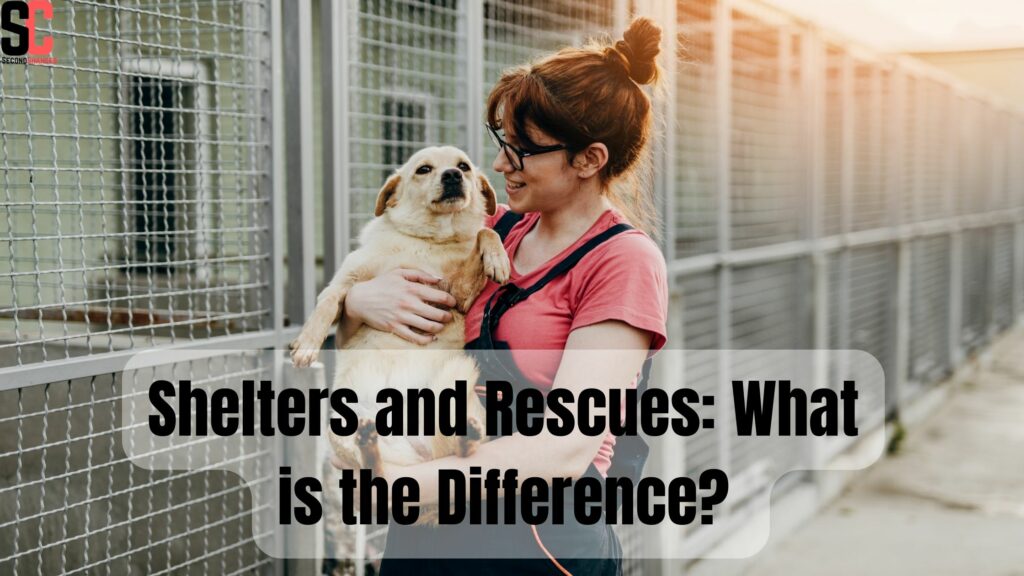
There are many sham operations that use the word “rescue” to fool compassionate people into believing they are helping animals escape cruel conditions. Several self-professed rescue outfits abuse animals in horrific ways.
A few “rescue” groups raise tens of thousands of dollars through online fundraisers to attend breeder auctions. Those groups can then sell dogs at exorbitant prices to buyers seeking specific breeds. Breeders admit that they are selling dogs they no longer intend to use and that since “rescuers” will pay almost any price, breeders are using the money to continue breeding for the purpose of selling dogs.
FAQs
What Does it Mean To Adopt A Second Chance Pet?
Most of the animals coming into House of Second Chances Animal Rescue come from shelters that have a high volume of animals and a limited amount of space to house them. The shelters accept stray animals and pets that their owners have relinquished. It is rare for these animals to have been in a home before, so things like house/litterbox training and interactions with children and other animals are unknown.
What is The Difference Between A Shelter And A Rescue?
While both shelters and rescues aim to place pups in loving homes, there are a few differences between them. A shelter or humane society is a temporary waystation for dogs, often housed in kennels or bigger facilities. This can make it seem like a doggie melting pot since they have a mix of breeds and types. A rescue organization is like a dog matchmaker with a personal touch. Their pets are usually fewer, and they focus on certain breeds or types. You get the inside scoop on the personalities of rescue dogs because many are living in foster homes. Moreover, rescue organizations usually have a “no-kill” policy, which means they don’t euthanize animals. If you want more assistance adopting a dog, consider adopting from a rescue.
What Are The Benefits of Adopting A Dog From House of Second Chances Animal Rescue?
Adopting a dog not only saves the dog’s life and breaks the cycle of pet overpopulation, but it also reduces animal cruelty. The cost of adopting a dog is usually less than buying one from a breeder, and many adopted dogs are already housebroken and trained. Once it has gone through an adjustment period, the dog is basically ready to settle into your home.
Conclusion
Every organization and facility differs. The adoption process at House of Second Chances Animal Rescue is generally less strict than that at Shelters, but there are always exceptions. Do you plan on adding a pet or companion animal to your family soon? Consider checking out Second Chance Animal Shelter in North Brookfield for your new furry friend!

